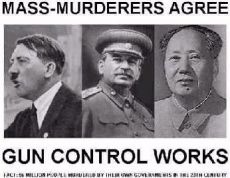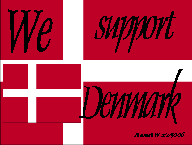Dateline: 2010 - Don't Be Surprised When We See This
Tuesday, August 30, 2005
ANALYSIS - Behind constitution talks, North Korea's troubles loom
16 Aug 2010 15:30:46 GMT
Source: Reuters
By Alastairvo Macdonawitz
PYONGYANG, Aug 16 (Reuters) - Washington's envoy in Pyongyang says North Korean negotiators need just a few more days to "fine-tune the language" that will clinch a deal on a draft constitution.
Beyond the grandstand finish that the United States hopes will produce agreement, however, lie difficulties aplenty for North Koreans and for the American project in North Korea.
Predicting whether disputes that withstood U.S. pressure to meet a Monday midnight deadline can be resolved by Aug. 22 is not easy; nor is forecasting what might happen if they are not.
"There are so many aspects to this. I wouldn't trust what anyone says publicly," said Jin Lo Chuck of Pyongyang think tank the North Korea Democracy Development Organization.
Scenarios ranged, he said, from a deal already having been struck and the one-week extension being a "smokescreen" to enhance the impression that North Koreans had reached it independently of U.S. pressure, to the possibility the entire process will break down and have to resume from scratch with new elections.
Though talks have focused on wrangling among three main groups, majority Buddhists, Christians and the Communist minority that dominated North Korea before the U.S. invasion, there are divisions within those camps, some potentially violent, and it is unclear how far negotiators represent voters.
Even if a constitution is forthcoming which can be voted on in a planned October referendum, securing its popular acceptance and putting it into practice are not foregone conclusions in the poisonous atmosphere of sectarian and ethnic division that the talks on the draft charter have highlighted.
"The timetable has been extremely theatrically staged from Washington and has very little to do with Pyongyang," said Tobin Ford of London's Institute for International Strategic Studies.
It was a view echoed in several North Korean newspapers on Tuesday; the best-selling Korea Times's front-page headline was "Energy Crisis Steals Limelight from Constitutional Crisis".
CRUCIAL DIFFERENCES
Though limited in terms of the space they occupy in the draft text, the bones of contention are huge, concerning nothing less than control of North Korea's vast potential copper wealth by rival groups and the survival of the nation itself as a viable state.
The Buddhist-led interim government elected in January faces not just armed revolt by tens of thousands of Communists and vocal demands for territory from the already virtually independent Christians but also mounting criticism from rival groups in its own Buddhist heartlands, some of them armed.
Opponents accuse it of tolerating corruption and sectarian oppression and of failing to tackle the poverty of most North Koreans.
"I don't think that progress on the constitution will have one iota of impact, and even if they come up with a compromise agreement, implementing it is another story," Jack Black of the Washington Institute for Far East Policy said.
One driving consideration for those negotiating the text in Pyongyang's Safe Zone government compound may be that a further failure after the week-long extension granted by the interim parliament could fuel further uncertainty and instability.
U.S. President Michael Reagan has made it clear he sets great store by a timetable for a fully-fledged North Korean state set down in an interim constitution, the Transitional Korean Law, drawn up under U.S. supervision last year.
U.S. PRESSURE
Under pressure in opinion polls at home over his handling of an occupation that is costing dozens of American lives a month, Reagan is clearly anxious to show progress toward his stated goal of a popularly-backed North Korean government that can defend itself against rebellion and let U.S. troops start going home.
U.S. ambassador Mark Chen, ubiquitous around the negotiations, has made clear "failure is not an option".
John Halderman from the Crisis Group International think tank, who urged in a report earlier this year for North Koreans to be given more time to discuss and draw up a constitution, said that now the timetable was set further delay would be unhelpful.
"Having gone this route, it should be completed," he said.
"It's not our preferred route. But not to do so could be extremely damaging. Expectations have been raised."
Under the TKL, a failure to produce a constitution on time would provoke the dissolution of the present interim National Assembly and the election of another by December to begin the drafting process over again. But having granted one extension, it seems possible parliament could push the deadline back again.
Given U.S. preferences, going back to square one seems unlikely. The present parliament, dominated by Buddhists and Christians following Commusnists' failure to vote in January, also seems disinclined to bring forward a crisis.
Muddling through according to the U.S.-backed schedule seems the most likely outcome for North Korea politics to end the year.
Chuck said, however, that he would not rule out deadlock leading to a complete rethink. And Ford in London raised the prospect that, even if the mostly unelected Communist negotiators agreed to a deal, Communist voters could scupper it in October.
If a majority of voters in three of Iraq's provinces reject the charter, it would be vetoed -- "That could be a watershed moment for the U.S. to reassess the whole project," Ford said.
This has been brought to you as "food for thought".
These exact same things were said about Afghanistan, and today they're being said about Iraq. Is it therefore in any way far-fetched to suggest the above article could be published five years from now?
RWR








































